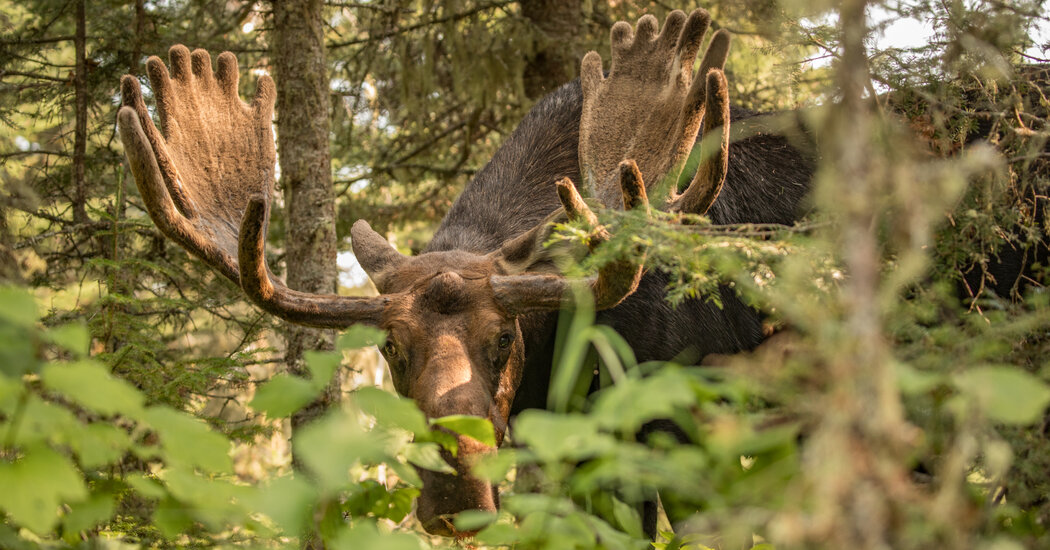Moose, the largest member of the deer family, are probably most closely associated in popular culture with the dimwitted but well-meaning cartoon character Bullwinkle.
But that lighthearted image took a darker turn last week after an Iditarod sled dog racer in Alaska made headlines for shooting and killing a moose to protect himself and his dogs, one of which was injured in the encounter. (He was also penalized for poorly gutting the carcass.)
Moose attacks against humans are uncommon, but they do happen in states with large moose populations. In Alaska, for example, as many as 10 are reported each year. And in Colorado, The Colorado Sun reported in October that at least four people were injured in moose encounters in 2023.
Ironclad statistics about fatal moose attacks against humans are unavailable, but wildlife experts agree they are extraordinarily rare as human fatalities involving moose result almost exclusively from vehicle crashes. (One case of a fatal moose attack in Sweden was originally thought to have been a homicide, according to a 2017 Journal of Forensic Sciences report.)
Rick Libbey has been shooting photos and videos of moose in the wild for 45 years. He said displays of aggressive behavior toward humans are abnormal and that about 90 percent of the time, moose are docile, peaceful creatures.
“The problem is the other 10 percent of the time,” he said.
So if you find yourself in one of those 1-in-10 situations, what do you do?
Read the body language.
Mr. Libbey said a moose that is feeling threatened or considering charging will present telltale signs of agitation.
If a moose’s ears are up, straight and cupped, all is well. But if its ears are pinned low to the back of its head, “that’s the first sign of ‘I don’t like this,’” Mr. Libbey said.
The hair on the back of the moose’s neck and shoulders might be raised and its eyeballs may bulge.
However, the clearest sign of imminent trouble — in the form of an animal weighing 1,000 pounds or more coming at you — is if a moose’s tongue is out and it’s licking its mouth, he said.
In that case, Mr. Libbey said, it’s no longer a question of if the moose will charge. “It’s going to happen,” he said.
Lee Kantar, a state moose biologist at the Maine Department of Inland Fisheries and Wildlife, explained that the tongue is a way for a moose to collect scent on its receptors to size up what it’s confronting.
Be moose aware.
For nearly a decade, Mr. Libbey has split his time in…
Click Here to Read the Full Original Article at NYT > Travel…
